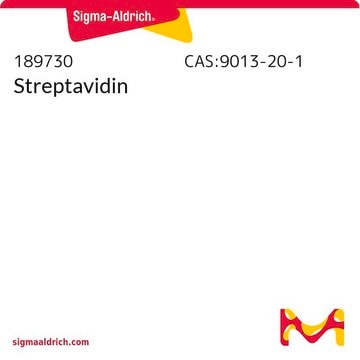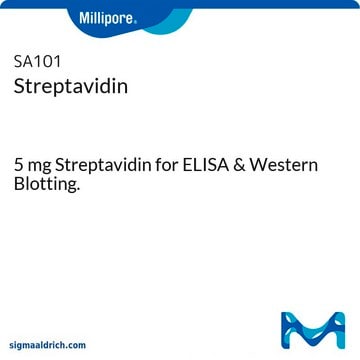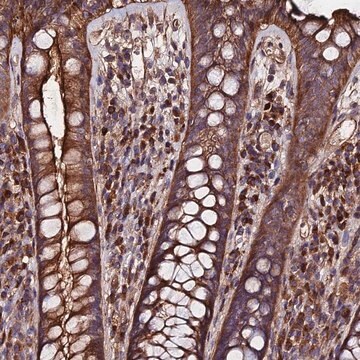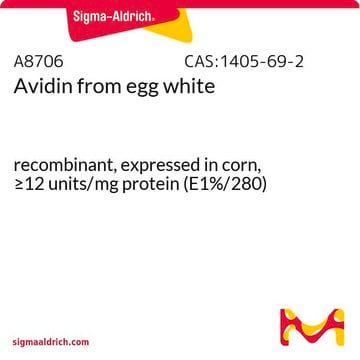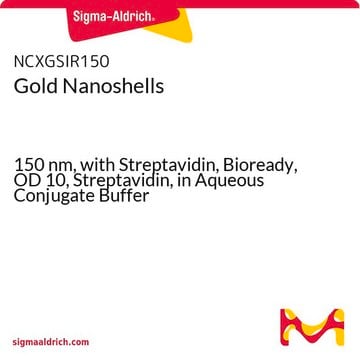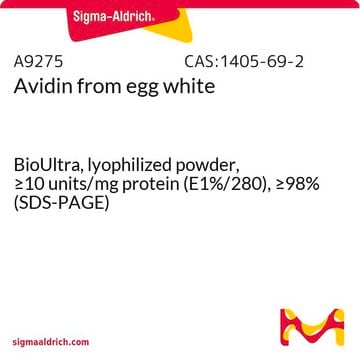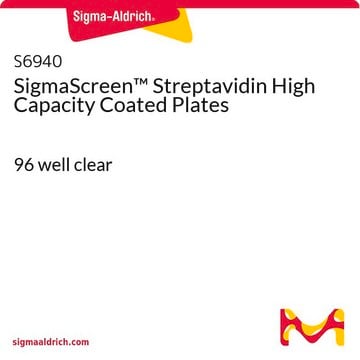RSTREP-RO
Roche
Streptavidin, recombinant
liquid, ≥17 units/mg protein, pH range 5.0-9.0
Sinónimos:
streptavidin
About This Item
Productos recomendados
biological source
Streptomyces sp. ( Streptomyces avidinii)
Quality Level
recombinant
expressed in E. coli
form
liquid
specific activity
≥17 units/mg protein
mol wt
~52 kDa
packaging
pkg of 1 mg (11721666001)
pkg of 5 mg (11721674001)
manufacturer/tradename
Roche
concentration
70-90%
technique(s)
protein array: suitable
protein purification: suitable
impurities
6-7% water
pH range
5.0-9.0
pI
7.4-7.7 (two main bands)
solubility
water: 10 mg/L (mA405=100)
suitability
suitable for immunological tests
UniProt accession no.
shipped in
cooler
storage temp.
-10 to -25°C
General description
Application
Sequence
Each subunit has six tyrosine residues.The protein is free of carbohydrate.
Unit Definition
Physical form
Protein: 0.7 ± 0.1mg protein lyophilizate (A282 = 3.1)
KD: 10-15M
Other Notes
Storage Class
11 - Combustible Solids
wgk_germany
WGK 1
flash_point_f
does not flash
flash_point_c
does not flash
Elija entre una de las versiones más recientes:
¿Ya tiene este producto?
Encuentre la documentación para los productos que ha comprado recientemente en la Biblioteca de documentos.
Los clientes también vieron
Nuestro equipo de científicos tiene experiencia en todas las áreas de investigación: Ciencias de la vida, Ciencia de los materiales, Síntesis química, Cromatografía, Analítica y muchas otras.
Póngase en contacto con el Servicio técnico